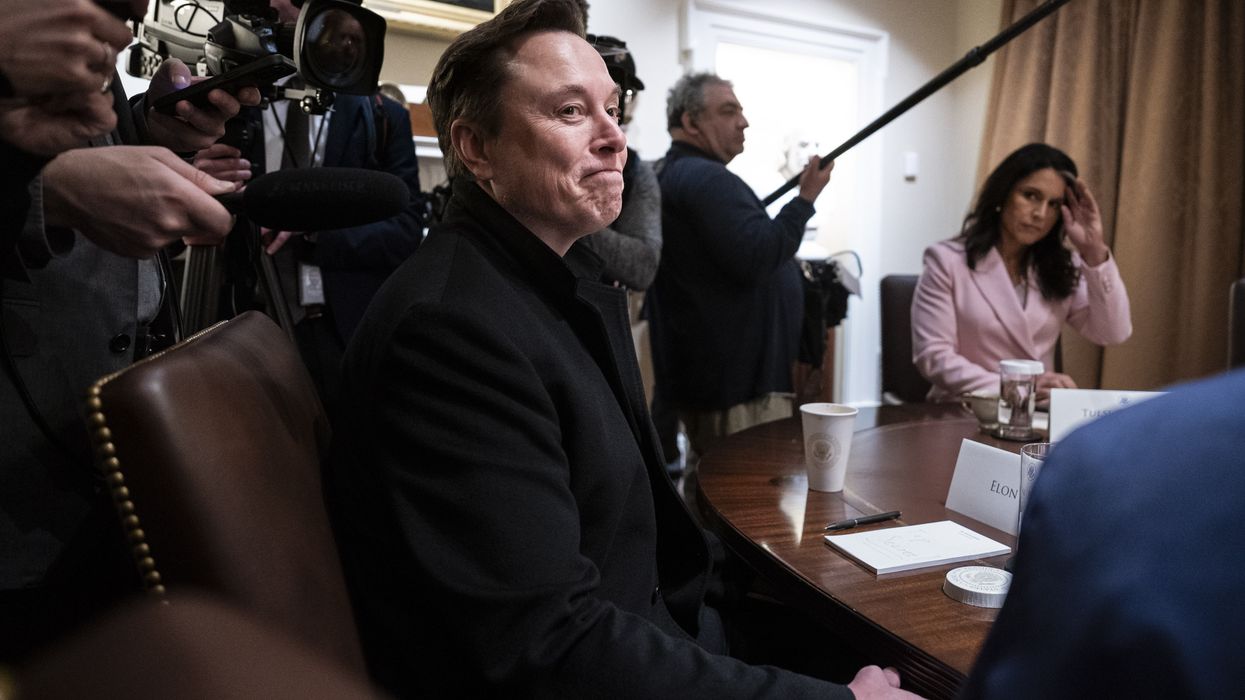The Genocidal Partnership of Israel and the United States
During this century, in the Middle East, the U.S.-Israel duo has vastly outdone all other entities combined in the categories of killing, maiming, and terrorizing.
For decades, countless U.S. officials have proclaimed that the bonds between the United States and Israel are unbreakable. Now, the ties that bind are laced with genocide. The two countries function as accomplices while methodical killing continues in Gaza, with both societies directly—and differently—making it all possible.
The policies of Israel’s government are aligned with the attitudes of most Jewish Israelis. In a recent survey, three-quarters of them (and 64% of all Israelis) said they largely agreed with the statement that “there are no innocent people in Gaza”—nearly half of whom are children.
“There is no more ‘permitted’ and ‘forbidden’ with regard to Israel's evilness toward the Palestinians,” dissident columnist Gideon Levy wrote three months ago in the Israeli newspaper Haaretz. “It is permitted to kill dozens of captive detainees and to starve to death an entire people.” The biggest Israeli media outlets echo and amplify sociopathic voices. “Genocide talk has spread into all TV studios as legitimate talk. Former colonels, past members of the defense establishment, sit on panels and call for genocide without batting an eye.”
Last week, Levy provided an update: “The weapon of deliberate starvation is working. The Gaza ‘Humanitarian’ Foundation, in turn, has become a tragic success. Not only have hundreds of Gazans been shot to death while waiting in line for packages distributed by the GHF, but there are others who don’t manage to reach the distribution points, dying of hunger. Most of these are children and babies… They lie on hospital floors, on bare beds, or carried on donkey carts. These are pictures from hell. In Israel, many people reject these photos, doubting their veracity. Others express their joy and pride on seeing starving babies.”
While the partnership between the governments of Israel and the United States has never been stronger, the partnership between the people of Israel and the United States has never been weaker.
Unimpeded, a daily process continues to exterminate more and more of the 2.1 million Palestinian people who remain in Gaza—bombing and shooting civilians while blocking all but a pittance of the food and medicine needed to sustain life. After destroying Gaza’s hospitals, Israel is still targeting healthcare workers (killing at least 70 in May and June), as well as first responders and journalists.
The barbarism is in sync with the belief that “no innocent people” are in Gaza. A relevant observation came from Aldous Huxley in 1936, the same year that the swastika went onto Germany’s flag: “The propagandist’s purpose is to make one set of people forget that certain other sets of people are human.” Kristallnacht happened two years later.
Renowned genocide scholar Omer Bartov explained during an interview on Democracy Now! in mid-July that genocide is “the attempt to destroy not simply people in large numbers, but to destroy them as members of a group. The intent is to destroy the group itself. And it doesn’t mean that you have to kill everyone. It means that the group will be destroyed and that it will not be able to reconstitute itself as a group. And to my mind, this is precisely what Israel is trying to do.”
Bartov, who is Jewish and spent the first half of his life in Israel, said:
What I see in the Israeli public is an extraordinary indifference by large parts of the public to what Israel is doing and what it’s done in the name of Israeli citizens in Gaza. In part, it has to do with the fact that the Israeli media has decided not to report on the horrors that the IDF [Israel Defense Forces] is perpetrating in Gaza. You simply will not see it on Israeli television. If some pictures happen to come in, they are presented only as material that might be used by foreign propaganda against Israel. Now, Israeli citizens can, of course, use other media resources. We can all do that. But most of them prefer not to. And I would say that while about 30% of the population in Israel is completely in favor of what is happening, and, in fact, is egging the government and the army on, I think the vast majority of the population simply does not want to know about it.
In Israel, “compassion for Palestinians is taboo except among a fringe of radical activists,” Adam Shatz wrote last month in the London Review of Books. At the same time, “the catastrophe of the last two years far exceeds that of the Nakba.” The consequences “are already being felt well beyond Gaza: in the West Bank, where Israeli soldiers and settlers have presided over an accelerated campaign of displacement and killing (more than a thousand West Bank Palestinians have been killed since 7 October); inside Israel, where Palestinian citizens are subject to increasing levels of ostracism and intimidation; in the wider region, where Israel has established itself as a new Sparta; and in the rest of the world, where the inability of Western powers to condemn Israel’s conduct—much less bring it to an end—has made a mockery of the rules-based order that they claim to uphold.”
The loudest preaching for a “rules-based order” has come from the U.S. government, which makes and breaks international rules at will. During this century, in the Middle East, the U.S.-Israel duo has vastly outdone all other entities combined in the categories of killing, maiming, and terrorizing. In addition to the joint project of genocide in Gaza, and the USA’s long war on Iraq, the United States and Israel have often exercised an assumed prerogative to attack Lebanon, Syria, Yemen, and Iran, along with encore U.S. missile strikes on Iraq as recently as last year.
Israel’s grisly performance as “a new Sparta” in the region is coproduced by the Pentagon, with the military and intelligence operations of the two nations intricately entangled. The Israeli military has been able to turn Gaza into a genocide zone with at least 70% of its arsenal coming from the United States.
While writing an afterword about the war on Gaza for the paperback edition of War Made Invisible, I mulled over the relevance of my book’s subtitle: “How America Hides the Human Toll of Its Military Machine.” As the carnage in Gaza worsened, the reality became clearer that the Orwellian-named Israel Defense Forces and U.S. Defense Department are essentially part of the same military machine. Their command structures are different, but they are part of the same geopolitical Goliath.
“The new era in which Israel, backed by the U.S., dominates the Middle East is likely to see even more violence and instability than in the past,” longtime war correspondent Patrick Cockburn wrote this month. The lethal violence from Israeli-American teamwork is of such magnitude that it epitomizes international state terrorism. The genocide in Gaza shows the lengths to which the alliance is willing and able to go.
While public opinion is very different in Israel and the United States, the genocidal results of the governments’ policies are indistinguishable.
American public opinion about arming Israel is measurable. As early as June 2024, a CBS News poll found that 61% of the public said that the U.S. should not “send weapons and supplies to Israel.” Since then, support for Israel has continued to erode.
In sharp contrast, on Capitol Hill, the support for arming Israel is measurably high. When Sen. Bernie Sanders’s (I-Vt.) bills to cut off some military aid to Israel came to a vote last November, just 19 out of 100 senators voted yes. Very few of his colleagues voice anywhere near the extent of Sanders’s moral outrage as he keeps speaking out on the Senate floor.
In the House, only 26 out of 435 members have chosen to become cosponsors of H.R.3565, a bill introduced more than two months ago by Rep. Delia Ramirez (D-Ill.) that would prevent the U.S. government from sending certain bombs to Israel.
“Israel is the largest cumulative recipient of U.S. foreign assistance since World War II,” the Congressional Research Service reports. During just the first 12 months after the war on Gaza began in October 2023, Brown University’s Costs of War project found, the “U.S. spending on Israel’s military operations and related U.S operations in the region” added up to $23 billion.
The resulting profit bonanza for U.S. military contractors is notable. So is the fact that the U.S.-Israel partnership exerts great American leverage in the Middle East—where two-thirds of the world’s oil reserves are located.
The politics of genocide in the United States involves papering over the big gap between the opinions of the electorate and the actions of the U.S. government. While the partnership between the governments of Israel and the United States has never been stronger, the partnership between the people of Israel and the United States has never been weaker. But in the USA, consent of the governed has not been necessary to continue the axis of genocide.


